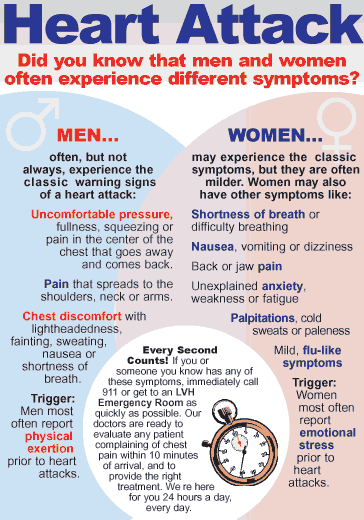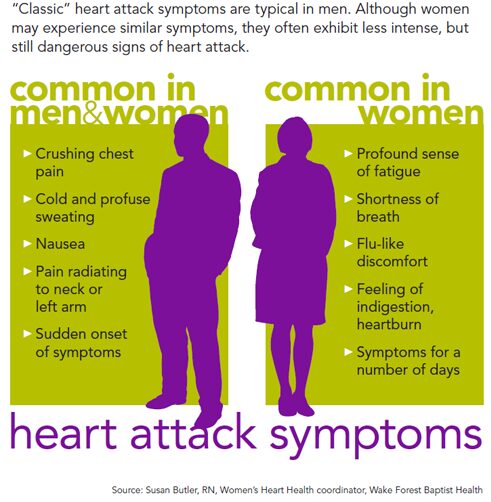A heart attack occurs because the supply of blood to the heart is completely stopped or severely reduced. When the blood supply to the heart is stopped or drastically reduced, the heart is deprived of oxygen. If the blood flow is not restored within a few minutes, parts of the heart muscle begin to die and permanent heart damage occurs.
Let us find out its causes, symptoms, and treatment:
Early Signs and Causes Of Heart Attack:
Most heart attacks are caused by a clot that blocks one of the coronary arteries which carries blood and oxygen to the heart. If the blood flow is blocked, the heart suffers from lack of oxygen and the heart cells die.
Factors that increase the risk of heart attack include:
– Genetic disorders or in other word hereditary factors.
– High cholesterol: The amount of cholesterol in the blood depends on age, sex, inheritance, and diet.
– Aging: Men older than 45 and women older than 55 are more at risk. Elderly people over 65 are more likely to die from the heart attack.
– Arterial hypertension: High blood pressure causes the heart to work excessively and over time weakens it.
– Consumption of tobacco: It increases the risk of developing coronary artery disease such as dying from it.
– Too much fat in the diet.
– Lack of physical activity.
– Mellitus diabetes.
– Obesity.
– Stress and anxiety.
Symptoms Of Hear Attack:

The main symptom of a heart attack is pain which can be felt only in one part of the body or radiating from the chest to the arms or shoulders, neck, teeth, jaw, abdominal area or back. The pain may be intense or mild and may feel like:
– Something heavy placed on the chest
– Bad digestion
– Crushing or strong pressure
– Chest discomfort accompanied by dizziness, pallor, sweating, nausea or difficulty breathing
– Difficulty breathing
– Sweating that can be profuse
– Nausea or vomiting
– Dizziness
– Anxiety
– Fainting
Heart Attack Treatment and Prevention:
A person who has suffered a heart attack needs to stay in the hospital, in the intensive care unit. The patient should be connected to an ECG machine so that the heartbeat can be controlled. Irregular, life-threatening beats are the leading cause of death during the first hours of the attack.
Following are the treatments which you need to take into the consideration:
- Nitroglycerin helps reduce chest pain: The patient can also receive strong medications to relieve pain. Anti-platelet medications help prevent the formation of clots.
- ACE (Angiotensin-converting enzyme) inhibitors are used to prevent heart failure and lower blood pressure.
- Beta-blockers help reduces tension on the heart and lower blood pressure.
In some cases of heart attack, a procedure or surgery called angioplasty may be necessary to open the blocked coronary arteries and may be used instead of thrombolytic therapy. Angioplasty with a stent can be a life-saving procedure for the person if they are experiencing a heart attack. Stent angioplasty does not help the person live longer but can reduce angina or other symptoms of coronary heart disease.

